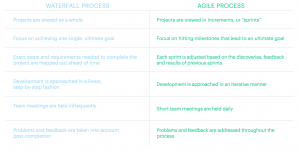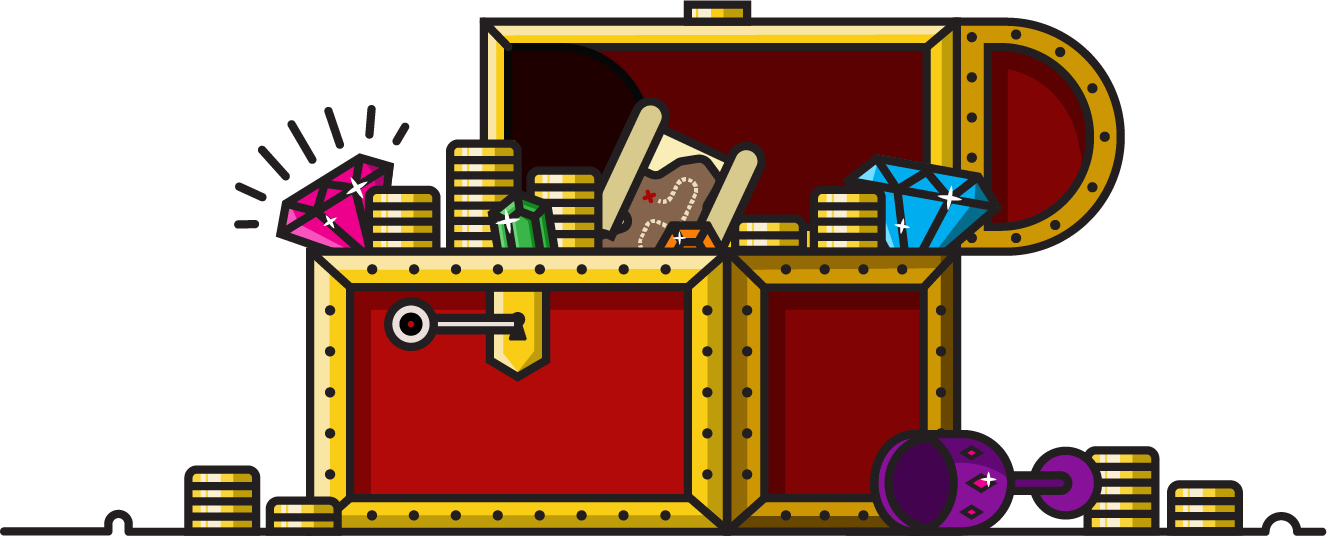As a salesperson, you are no stranger to frameworks. From Value Selling to the Sandler System, dozens of sales methodologies promise to improve your prospect relationships, enhance productivity, and fundamentally change the way you sell.
Well, there’s a new sheriff in town. And unlike existing frameworks, this one doesn’t change the way you sell; it transforms your sales organization itself. This fresh methodology will make you rethink your sales tools, restructure your sales process, and reevaluate the way you measure success, and it’s called agile sales.
What Is Agile Sales?
Agile sales has its roots in the engineering world, where agile development was originally founded in opposition to the traditional waterfall development framework.
According to agilemethodology.org, “The Agile movement seeks alternatives to traditional project management. Agile approaches help teams respond to unpredictability through incremental, iterative work cadences and empirical feedback.”
ALSO READ: What to Look for in an Agile Project Management Tool
The key differences between these two development processes are highlighted in the chart below.

Agile has grown rapidly amongst IT teams, particularly in the last five years, with research stating that agile projects are three times more likely to succeed than those managed using waterfall approaches. What’s more, 87 percent of agile survey respondents agree that this more recent methodology is improving the quality of work life for their teams.
Why Does Agile Sales Matter?
Although the term “agile sales” does not yet have the same traction with B2B sales teams as “agile development” has with programmers and engineers, it is sure to take hold. In fact, a recent agile survey reported that nearly one-fourth of respondents came from industries outside of software development and IT.
Agile provides sales managers with a key framework for addressing and embracing the many trends and changes happening in the sales world today. Among these are the growing presence of millennials in the sales force, the need to make more scientific and data-backed decisions, and the move toward an account based sales approach.
Telling a millennial that she can’t make any adjustments to your call script and has to continue doing things “the way they’ve always been done” probably won’t go over so well. Tracking a sales process in Excel simply won’t cut it when data should be aggregated and analyzed in real-time. And handing reps a disorganized list of leads doesn’t support the targeted and personalized outreach needed to connect with modern prospects.
Yet despite these changes and pivotal drivers, many sales teams are still being managed using the “same old” values, frameworks, and methodologies.
How Can Agile Sales Help You?
There are 10 key agile principles that may be applied to your sales to effectively address these challenges and improve the functionality and results of your organization:
- Accountability
- Adaptive Planning
- Collaboration
- Continuous Iteration
- Functionality
- Measurement
- Organization
- Predictability
- Recognition
- Transparency
While not every one of these components may work for your team, it’s worth investing the time to identify ways that agile values can move your sales organization forward. For now, let’s take a look at how these 10 principles can work together to have an impact on your sales team, tactics, and tools.
What Agile Means for Your Sales Team
If your sales team is known for having a lone wolf culture, remember that millennials share pictures of their food with their friends before they eat it. Through practices like daily stand-up meetings, where team members share updates and address challenges, agile sales creates a more collaborative sales environment.
The daily stand-up meetings, constant feedback loops, and focus on accountability in agile methodology also foster a culture of recognition. Not only do consistent check-ins result in inherent acknowledgment, but they also make it easier to benchmark success, as needed for promotions. With 38 percent of millennials stating that they would like to see the recognition programs at their current employers improved, establishing a culture of recognition is key for the future of sales.
What Agile Means for Your Sales Tactics
Too often, sales teams are so focused on hitting quota that they fail to stop and strategically evaluate their performance until they miss their quarterly (or yearly!) forecast. With so much data at your team’s fingertips, this approach is no longer acceptable, or competitive. Agile sales offers a framework for adaptive planning and continuous iteration that builds flexibility, measurement, and optimization into your sales process.
By breaking sales goals into shorter, more manageable segments, or “sprints,” your team can consistently assess performance and make small, incremental optimizations over time to reach your ultimate goal. This iterative approach allows you to both fail and succeed more quickly, as well as empowers your team to more quickly adjust to prospects’ needs throughout the sales cycle.
What Agile Means for Your Sales Tools
Of course, no matter how agile a sales team may try to be, it can only get as far as the sales technology that it has in place will allow. Desktop-only functionality, endless forms and fields, difficult navigation, and required point solutions are just a few of the sales tool flaws that may be preventing your team from making data-driven decisions and building personal customer relationships.
Taking an agile approach to sales forces you to reconsider the tools that your team uses on a daily basis. Are they intuitive and easy to use on any device? Do they improve rep productivity and organization? Do they power advanced data collection and analysis? What about enhancing pipeline visibility? Seeking sales tools that enable you to positively answer these questions is one of the first steps to optimizing your sales organization via agile.
How Can I Get Started With Agile Sales?
With so many potential benefits for sales organizations, agile is sure to become an increasingly popular topic outside of developer markets. Start testing out the tips above or dig deeper into the 10 agile principles with this Ultimate Guide to Agile Sales.
Rachel Serpa is sr. content marketing manager at Base. She’s a Bay Area native who works out of the Base HQ in Mountain View, CA. When she’s not writing about the Science of Sales, she loves reading historical fiction, traveling Europe, cooking up a storm, and spending time with her husband and her dog.


